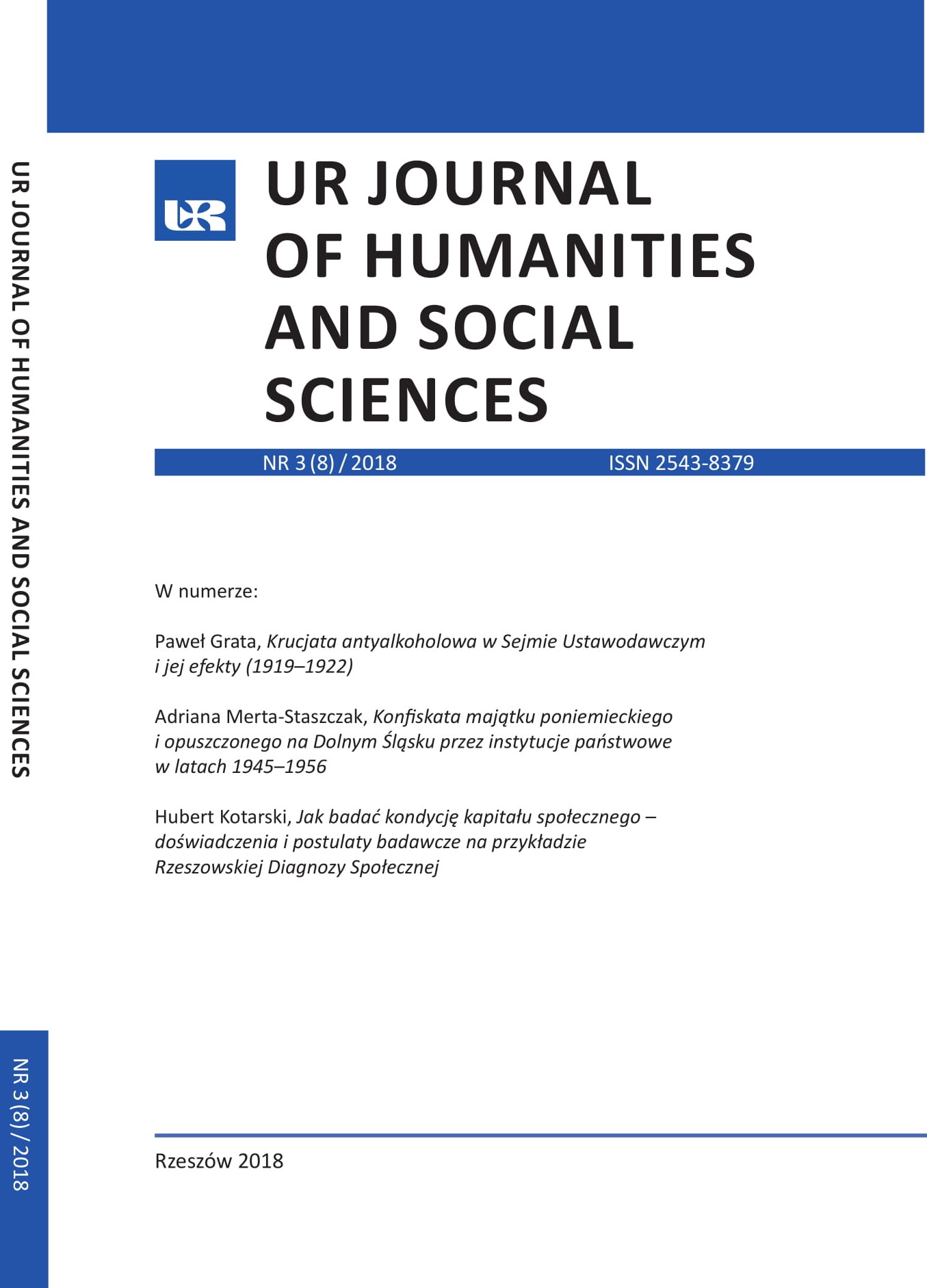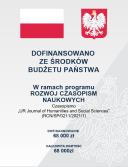The anti-alcohol crusade of the Legislative Sejm and its effects 1919–1922
DOI:
https://doi.org/10.15584/johass.2018.3.1Keywords:
Second Polish Republic, social politics, the fight with alcoholism, the Legislative Sejm, ProhibitionAbstract
The struggle against alcoholism was an essential element of social policy during the Second Republic, and at its heart were the creation of appropriate legal norms. The biggest contribution in this field was made by the Legislative Sejm, whose work became the first Polish anti-alcohol laws. The matter of the propagation of abstinence and the restriction of the consumption of strong alcohols never met with as much sympathy or understanding as it did during the term Legislative Sejm, whose membership, social structure and inclination towards temperance resulted in a clear prohibitionist tendency on the question of the consumption of alcohol related products. There would appear to be much justification in the titular ‘anti-alcohol crusade’. The results of the Sejm’s work was the passing of the Act of 23rd April 1920, which introduced significant limits on the sale of alcoholic drinks. Furthermore, the terms of the Act gave adherents of prohibition some hope of its gradual implementation across the country. During the phase of limiting production, sale and consumption there developed a highly visible conflict between activists fighting with alcoholism and the Government, especially the Treasury Minister. The clash centred around the conflict between ideals and the interests of the national budget. This conflict was won decisively by the supporters of limiting the sale of alcohol, although this victory brought nothing tangible as a result, and the Act of 23rd April 1920 was never fully implemented. The final confirmation of this failure was the passing of an Act of 21st March 1931 which limited the sale, serving and consumption of alcoholic drinks (anti-alcohol), which officially marked the return to pragmatism in this area of public life.
Downloads
Downloads
Published
How to Cite
Issue
Section
License
Copyright (c) 2018 Wydawnictwo Uniwersytetu Rzeszowskiego

This work is licensed under a Creative Commons Attribution-NonCommercial 4.0 International License.



